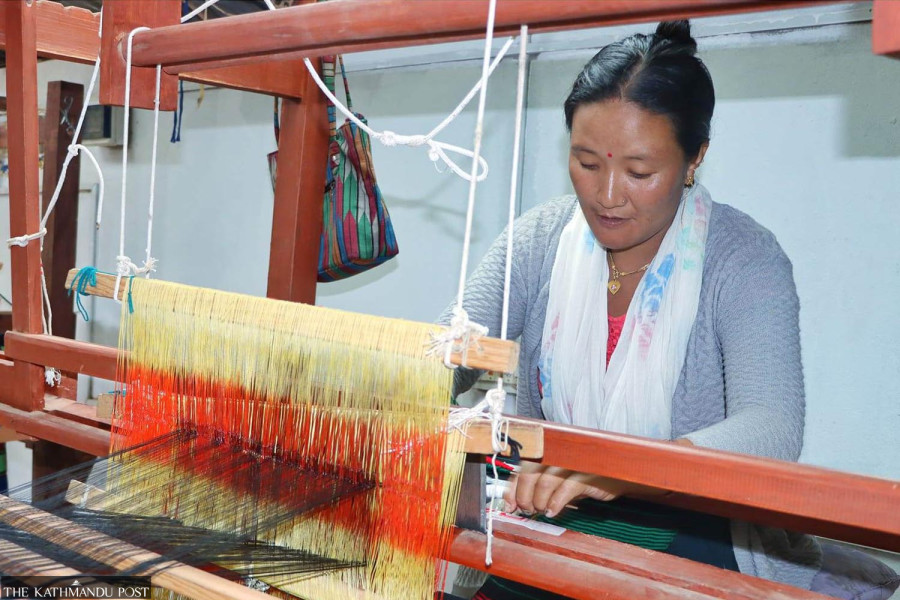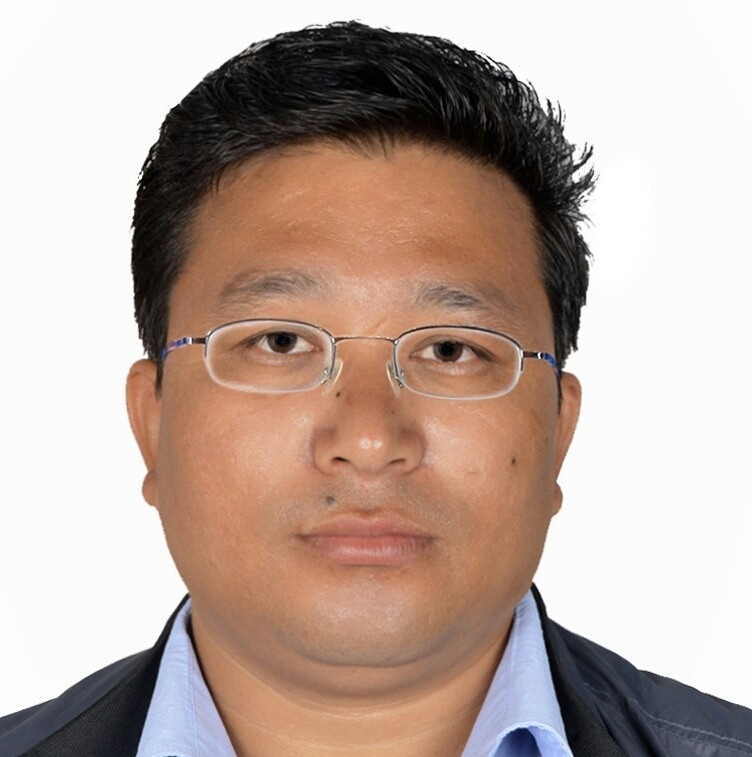Money
Ex-Maoist women fighters find solace in allo business
Municipality has even adopted allo garments as official attire for people’s representatives to support the local industry.
Kashiram Dangi
Former women Maoist fighters in Rolpa, the heartland of Nepal’s decade-long insurgency, have left behind their years of struggle for survival. Most of them have now become successful entrepreneurs.
Many of them have found a new livelihood in weaving clothes from allo—a tall, sturdy herb known as Himalayan nettle. Products from allo such as bags, caps, shawls, and scarves have become popular. A bag costs Rs325, a cap Rs300, a women’s shawl Rs550, and a scarf Rs500.
In Rolpa, it is customary to present guests with allo-based gifts. During gatherings, conferences, or while welcoming visitors, people use allo products as a gesture of hospitality and affection.
Allo, a locally sourced material, holds deep cultural and economic value. The Rolpa municipality has even adopted allo garments as official attire for public workers to support local industry. Most representatives wear coats, caps, or shawls made from allo cloth during official events.
Various items such as purses, shirts, and other garments are now being produced from the allo fabric.
The practice of gifting a Rolpali bag to visitors is becoming increasingly common. Despite the challenges in sourcing and transporting allo thread to factories, local entrepreneurs like Shreemaya Roka from Thabang find the craft satisfying.
She now runs an allo thread factory and emphasises that access to raw materials is key to sustaining and expanding this business.
Using allo products such as bags and mobile purses gives a sense of joy to both the makers and users, people in the field have shared.
Gita Thapa Acharya, deputy mayor of Rolpa and a leading entrepreneur, said the popularity of allo surged after the peace process.
Before taking on her municipal role, she was actively involved in the allo industry and now hopes to return to it.
Years ago, she and her team established the Rolpa Community Allo and Cloth Industry in Libang.
Initially, not everyone was enthusiastic about the venture. “In the beginning, we operated the industry in partnership among 17 people,” Acharya recalls. Today, the management committee is primarily composed of women.
Thanks to basic Cottage and Small Industry Development Committee training, many similar businesses have emerged, with female entrepreneurs active across the district.
In the factory led by Gita, most workers were former Maoist fighters, who, after the peace process, could develop skills and build businesses. Many of these individuals had prior experience working in party-run enterprises during the Maoist People’s War.
Investment in the allo industry varies from Rs50,000 to Rs2 million. In Rolpa, such ventures are run both collectively and independently. The district produces around 12,000 quintals of “bhang” and 2,200 quintals of “puwa” annually, signalling a high potential for local employment through allo-based production.
Several prominent allo enterprises operate in the area, including the Rolpa Community Allo Thread and Cloth Industry in Libang, the Libang Allo Thread Industry in Homa, the Navadurga Allo Thread Industry in Libang, and the Phulbari Handmade Paper and Allo Thread Industry in Mirul Tutu.
Some focus solely on thread production while others also manufacture cloth.
According to the District Cottage and Small Industry Development Committee, the total investment in these businesses is roughly Rs6 million. As allo thread distribution increases, more industries are being established.
Locally known as Lekali Sisno and puwa in the Magar Khami language, the allo plant typically grows in altitudes above 1,500 metres. Previously, there was no need to cultivate it due to its abundance in the forest, but rising demand has made its cultivation necessary. The economic potential of allo has drawn the interest of both local residents and remote dwellers.
Rampura Roka Magar from Thabang, who buys allo thread in Libang, said she and her twin sisters have started exporting the thread to foreign markets.
Their trading business has grown significantly. The local allo fabric becomes more expensive once it reaches Kathmandu.
The eldest of the two sisters, Junpura Roka said their business has provided stable employment and given them an identity.
Their success even enabled them to build a seven-story house in Libang, and their annual turnover is reported to be about Rs6 million.
Currently, allo cloth in Rolpa starts at around Rs1,200 per metre. A men’s coat made from this fabric could cost up to Rs4,200.
According to the Cottage and Small Industry Development Committee, the district supplies allo thread and cloth worth Rs40 million annually.




 15.47°C Kathmandu
15.47°C Kathmandu














